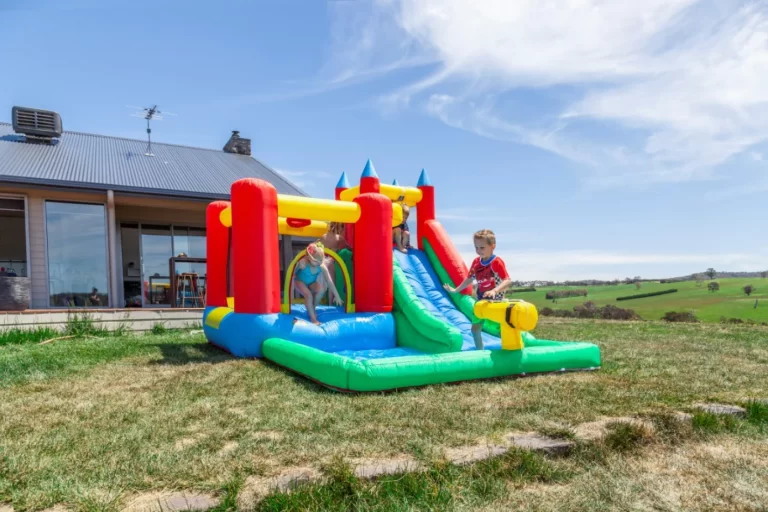
early childhood
Imagination and creativity are crucial elements of childhood development. They play a critical role in shaping children’s thoughts, beliefs, and perceptions of the world around them. In the early years, children have a natural inclination to engage in imaginative play and explore their creative side, but it is up to parents and caregivers to provide opportunities and encouragement to help nurture and develop these skills.
With the right support and stimulation, children’s imaginations can flourish, and they can develop into confident, creative, and imaginative individuals. They will learn to navigate the world around them easily and embrace challenges with innovative solutions. With Toy Box early learning, this is a possibility!
Here are some of the key reasons why imagination and creativity are important in early childhood:
How do Imagination & Creativity Impact Early Childhood?
Brain Development
Brain development during early childhood is a critical period for forming neural connections and establishing cognitive, emotional, and social skills. Research has shown that engaging in imaginative play, and creative activities can significantly contribute to the development of various cognitive functions, including memory, problem-solving, and critical thinking.
Through imaginative play, children have the opportunity to practice and develop their cognitive skills in a safe and fun environment, allowing them to build their confidence and independence. Furthermore, imaginative play can also help children develop their emotional intelligence as they learn to understand and express their feelings, empathize with others, and resolve conflicts.
Building Confidence
Building confidence is an important aspect of early childhood development. Imaginative play and creative activities allow children to express themselves, take risks, and experiment in a safe and supportive environment. Children learn to trust their abilities and develop a positive self-image as they engage in these activities.
They feel a sense of accomplishment when they create something new or successfully solve a problem, reinforcing their confidence in their abilities. Furthermore, creative activities that allow children to take on different roles and perspectives can also help them build self-esteem and resilience.
By giving children a chance to express themselves, take on new challenges, and build confidence, parents and caregivers can help them develop into self-assured and confident individuals. If you are a parent or guardian looking for early learning programs near me, contact an expert from any of the top early childhood learning service companies, and speak to them directly.
Promoting Language Development
Promoting language development is another important benefit of imaginative play and creative activities in early childhood. Children learn new words and concepts as they engage in imaginative play and creative activities, which helps them expand their vocabulary and improve their communication skills. They also have the opportunity to practice using language in various contexts and with different purposes, such as giving directions, asking questions, and expressing emotions.
Additionally, creative activities can help children learn new words and concepts related to various themes and subjects, such as colours, shapes, numbers, and the natural world. By providing opportunities for imaginative play and creative activities, parents and caregivers can help children build their language skills and lay the foundation for future academic success.
Encouraging Exploration & Discovery
Encouraging exploration and discovery is a key aspect of imaginative play and creativity in early childhood. Children have an innate curiosity and desire to explore and discover new things, and imaginative play and creative activities provide the perfect outlet for this natural inclination. Through these activities, children have the opportunity to experiment with different materials, tools, and techniques and try out new ideas and perspectives.
This encourages them to take risks and be curious, leading to discoveries and a love of learning. Additionally, creative activities that involve role-playing and imaginative scenarios allow children to explore new ideas and experiences in a safe and controlled environment. By providing opportunities for imaginative play and creative activities, parents and caregivers can foster children’s natural curiosity, creativity, and sense of discovery.
Supporting Emotional & Social Development
Supporting emotional and social development is another important benefit of imaginative play and creativity in early childhood. Imaginative play allows children to practice and develop their emotional intelligence as they learn to understand and express their feelings, empathize with others, and resolve conflicts. They also have the chance to experiment with different social roles and relationships, which can help them develop their social skills and build strong, positive relationships with others.
Furthermore, creative activities that involve collaboration and teamwork can help children learn how to communicate effectively, take turns, and respect others’ ideas and perspectives. By providing opportunities for imaginative play and creative activities, parents and caregivers can support children’s emotional and social development, helping them build the skills they need to navigate the world.
Fostering Creativity & Imagination
Fostering creativity and imagination is a key aspect of early childhood development and can positively impact children’s future success. Imaginative play and creative activities allow children to explore their ideas and express themselves freely, which can help them develop their creative thinking and problem-solving skills. Furthermore, creative activities that involve experimentation and exploration can help children develop their imagination and spark their curiosity.
Parents and guardians can look for preschools near me and assist their children by providing a wide range of materials, tools, and opportunities for creative expression to help them develop their imagination and creativity. They can build the skills they need to be innovative and confident problem-solvers. Additionally, by encouraging children to be creative and imaginative, parents and caregivers can help them develop a lifelong love of learning and the ability to see the world in new and different ways.
Conclusion
Imagination and creativity are key components of healthy childhood development. Parents and teachers should prioritize providing opportunities for imaginative play and creative activities to support children’s growth and development. These experiences will not only foster the development of essential skills but also provide children with a sense of joy, wonder and fulfilment that will stay with them throughout their lives.
Still, looking for childcare services near me? Look no more, and speak to experts at Toy Box Learning today!







